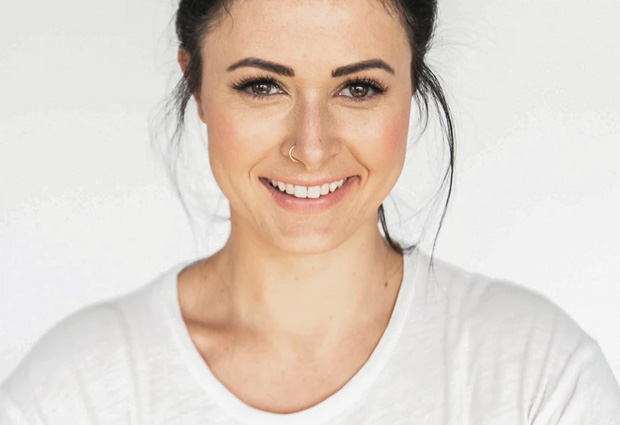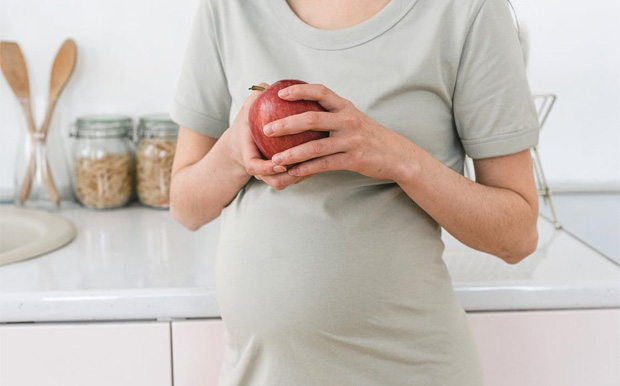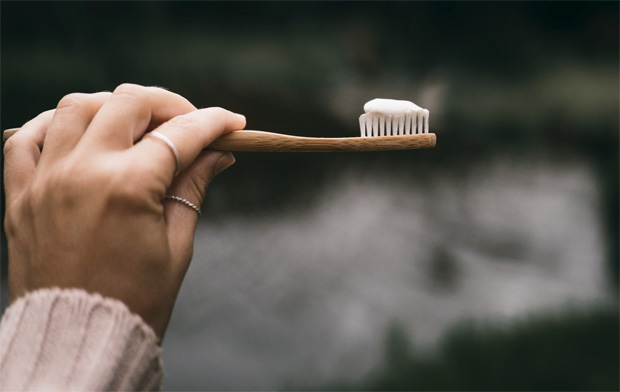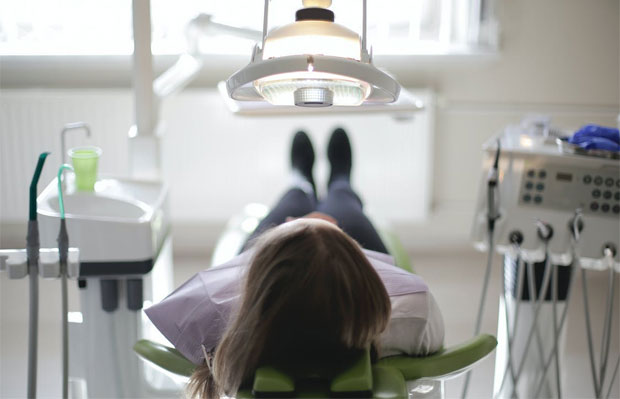Hormones and Oral Health in Women — Problems & Solutions

Hormones and Oral Health in Women — Common Problems and What to Do About Them
Hormones affect so many parts of our bodies and for women especially. In this article, we are looking at how the fluctuating hormone levels during pregnancy have an impact on women’s oral health.
The effect is often very obvious during pregnancy and breastfeeding when many women complain about their gums and teeth feeling different, but many women also experienced oral health problems during puberty, menstruation and menopause when hormones are all over the place too.
I have had three pregnancies and during each one I experienced changes to my teeth and gums too. My gums became very delicate and would bleed when I flossed or brushed my teeth. This is common during times when women experience hormonal changes, like pregnancy. I also developed gingivitis during one of my pregnancies.

- How Do Hormones Affect Our Teeth & Gums During Pregnancy?
The creation and circulation of female hormones causes increased blood flow to the gums which makes them tender and more susceptible to plaque and bacteria build-up. This can cause the gums to get inflamed and swollen which can lead to bleeding when flossing or brushing. If it is prolonged, it can lead to mild gum disease like gingivitis and periodontal disease.
Women produce more estrogen during a single pregnancy than throughout the rest of their lives and this is what makes teeth and gums so vulnerable to problems during pregnancy.
The surge in hormones happens to help ligaments relax to help prepare the woman’s body for birth and improve the formation of blood vessels for a healthy growing baby.
Pregnancy also means a reduced flow of saliva which adds to the problem. Saliva has natural antimicrobial and antiviral properties to help protect teeth and gums.
Other things that can negatively affect women’s dental health during pregnancy are unhealthy cravings for sweet foods, morning sickness which might lead to lots of small snacks which is not good for teeth and vomiting which is damaging to the enamel.

- What Can I Do to Protect my Teeth & Gums?
Having dental problems like these are completely normal and caused by the fluctuating hormone levels. If you are currently experiencing hormone related dental issues, do not worry – there are many ways to prevent them and to treat them.
The first obvious thing to do is to have a good dental hygiene routine with regular (twice a day) brushing, flossing and use of interdental brushes to ensure a thorough clean. I also made sure I always had alcohol-free mouthwash available during my pregnancies to help keep my teeth clean and to use after any morning sickness induced vomiting as you’re not supposed to brush straight afterwards.
It is also important to visit your dentist during your pregnancy to get advice and treatments for any oral issues, such as the dental hygienist service at Vallance Dental Centre in Manchester. In the UK, NHS dental care is free during pregnancy and 12 months after you’ve had your baby so it’s a great time to visit frequently to catch and treat any problems early.
Another thing that you can do is to chew sugar-free chewing gum. Research by the Department of Dentistry at King’s College London in 2019 found that people who chew sugar-free gum develop 28% fewer cavities than those who do not. Sugar-free chewing gum also alleviates inflamed gums and dry mouth by stimulating saliva production by up 10 to 12 times the normal amount. This saliva neutralises acid, soothes inflammation and rids the mouth of bacteria and plaque.
Chewing sugar-free gum is an easy way to look after your teeth and it can also help with nausea which is a wonderful bonus for many pregnant women.
Eating a healthy diet with plenty of fruit and vegetables, wholegrain options and protein will also help your oral health and your (and your baby’s!) overall health as will drinking plenty of water throughout the day. It can be hard during pregnancy but try to limit sugary foods or at least don’t snack on them throughout the whole day.

Many women continue to suffer from these problems during breastfeeding and other hormonal life events. Looking after your oral and dental health is always a good investment so try to keep up the routine of looking after your teeth and gums throughout life.
Collaborative Post. Contains a sponsored link.




